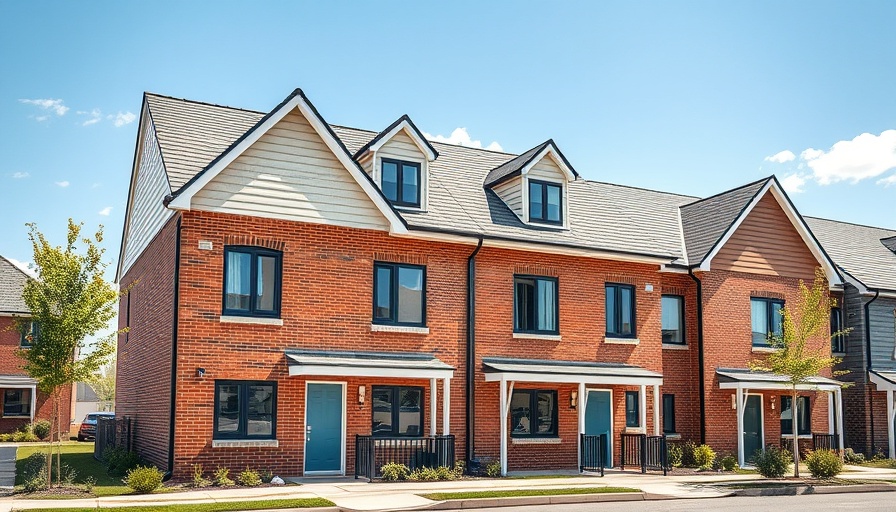
The Multifamily Housing Market: Current Challenges
The multifamily housing market is facing unprecedented challenges as builders pull back significantly on new projects. A recent analysis from Redfin highlights a staggering 27.1% drop in multifamily building permits since their peak during the pandemic. At a time when demand is crucial, new apartment rentals enter the market at a crawl, raising countless concerns for renters and investors alike.
Why are Builders Slamming the Brakes?
Sheharyar Bokhari, a senior economist at Redfin, flags elevated interest rates as a primary culprit making new construction prohibitively expensive. When interest rates soar, borrowing costs inescapably climb, leaving builders wary of undertaking new multifamily projects. This caution is echoed by data from the U.S. Census Bureau which shows that, while the height of the pandemic saw an average of 17 permits filed per 10,000 residents, this figure has correctly fallen to only 12.4 permits. As costs rise, many builders are cutting back to avoid financial risks and slow growth.
The Toll of Tariffs and Material Costs
It's not just interest rates that are causing alarm. Builders now face increased costs for construction materials due to tariffs enacted during the previous administration. Combined with slackened rent growth, nearly two-thirds of the markets analyzed by Redfin are observing a decline in multifamily permitting activities since the pandemic. Particularly, dramatic drops have been noted in towns such as Stockton, California, where permitting hit a wall, and Colorado Springs, Colorado, which saw an 82% decline.
There are Still Bright Spots: The Silver Linings
Despite the widespread slowdown, some cities are bucking the trend and boosting construction. Oklahoma City has experienced a remarkable 193% increase in permits, signaling a robust demand amidst a downturn. Similarly, Austin, Texas, leads with 64.5 units permitted for every 10,000 residents, illustrating how certain urban dynamics, including remote work shifts that triggered surges in housing demand, sustain growth.
Future Implications for Renters
As construction slows down, the housing market faces the looming risk of a supply crunch. With fewer projects underway, renters could soon find themselves grappling with limited options and escalating prices. Redfin warns that if this trend persists, it may not just mean fewer units; it could also translate into a tighter market that pressures affordability.
Conclusion: What This Means for You
The multifamily market's contraction could lead to a tightening housing supply and rising rent prices. As a resident in a city facing these trends, it is crucial to stay informed about local housing developments and potential shifts in rental costs. By keeping a pulse on market conditions, you can prepare for upcoming changes and ensure you're making the best housing decisions in an uncertain environment.
 Add Row
Add Row  Add
Add 




 Add Row
Add Row  Add
Add 

Write A Comment